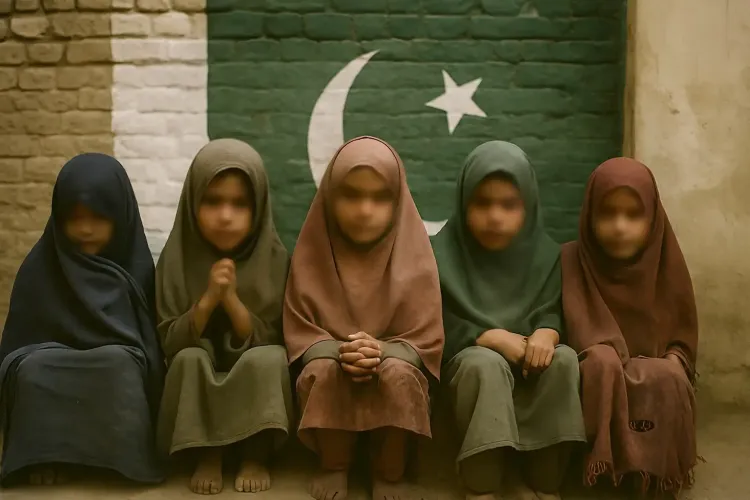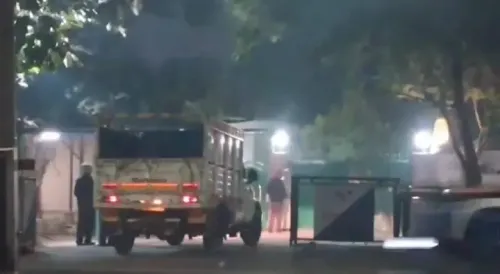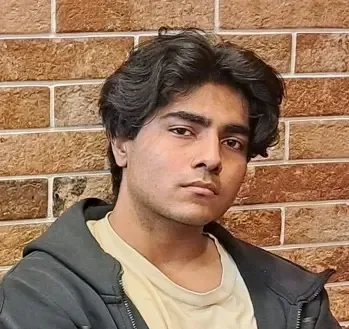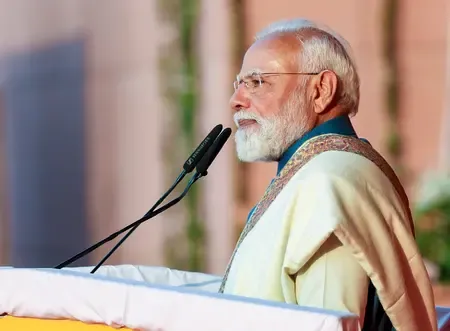What’s Happening to the Forgotten Girls of Pakistan?

Synopsis
Key Takeaways
- Minority girls in Pakistan face severe human rights violations.
- Data shows alarming trends in abductions and forced conversions.
- International funding practices often overlook these issues.
- There is a critical need for moral accountability from global institutions.
- Silence on these issues can be seen as complicity in oppression.
New Delhi, Oct 23 (NationPress) In Pakistan, the abduction, forced conversion, and marriage of minor Hindu and Christian girls have become one of South Asia’s most enduring human rights crises.
Amidst the political discussions on reform and international collaboration lies a harsh truth: minority girls continue to vanish, their identities obliterated, and their families rendered mute.
This relentless tragedy challenges the very integrity of global pledges to gender equality and human rights.
Data-backed reality
A recent report titled ‘Pakistan: Gender-based Violence against Minor Girls of Hindus, Sikhs, and Christians’, published by the Global Hindu Temple Network, provides verified statistics on hundreds of incidents involving the abduction and forced conversion of minor girls between 2021 and 2025.
The report emphasizes how religious identity exacerbates gender vulnerability in Pakistan, where girls from Hindu and Christian communities are frequently abducted from their households, coerced into conversion, and married off to significantly older men.
The findings reveal that most victims are under 16 years of age, and in over 70% of documented instances, law enforcement either refused to file First Information Reports (FIRs) or subsequently weakened them under duress. In numerous cases, victims were presented in court asserting they had “willingly converted,” a narrative often extracted under pressure.
In Sindh and Punjab, the two provinces with the highest number of recorded incidents, the connection between religious extremism and patriarchal dominance fosters a climate of fear.
The report also highlights a troubling lack of institutional response, where state and law enforcement bodies not only neglect to protect victims but in some cases, even assist the perpetrators. This culture of impunity perpetuates a cycle of fear, driving minority families into silence or exile.
Raising issue at global platforms
Drawing upon these insights, Mohinder Gulati, President of the Global Hindu Temple Network America, recently spotlighted the issue at the World Bank Civil Society Organisation (CSO) Forum and in discussions with the Managing Director of the International Monetary Fund (IMF).
He questioned how Pakistan continues to secure billions in developmental aid while disregarding severe violations of its minority girls’ fundamental rights.
This situation raises significant questions about Pakistan’s adherence to international agreements concerning women’s and children’s rights, including CEDAW and the Convention on the Rights of the Child.
Gulati’s intervention pointed out a glaring contradiction: while international organizations publicly advocate for gender equality, their funding practices often overlook systemic discrimination in recipient nations.
If gender justice remains confined to metrics rather than moral accountability, the essence of “inclusive development” loses its meaning.
Silence becomes complicity
Pakistan’s treatment of its minorities is not an isolated issue; it reflects systemic gender injustice. The lack of global outcry indicates a concerning hierarchy within human rights advocacy, where the faith of victims determines the urgency of the response.
International institutions cannot claim moral leadership while disregarding the abduction and violation of young girls based on their religion.
Development aid that overlooks such abuses does not empower; it enables. Funds allocated for women’s empowerment and education cannot absolve a state that denies its minorities the right to dignity and protection.
The report emphasizes that until justice for these girls becomes a central part of the gender dialogue, every statement on “equity and inclusion” will be rendered meaningless.
Call for moral and institutional accountability
This issue requires more than mere diplomatic caution; it demands moral clarity. The World Bank and IMF must reassess their gender policy enforcement in countries like Pakistan, ensuring that funding corresponds with genuine progress on human rights standards.
Monitoring should extend beyond token representation and include independent evaluations of gender-related violations, particularly those affecting minorities.
The silence surrounding the abduction of Hindu and Christian girls is not solely Pakistan’s failure; it signifies a failure of global conscience. As long as institutions gauge progress through metrics rather than justice, aid will continue to be complicit in oppression.
(Dr. Vinay Nalwa is the co-author of the report “Pakistan: Gender-based Violence against Minor Girls of Hindus, Sikhs, and Christians,” published by the Global Hindu Temple Network.)










